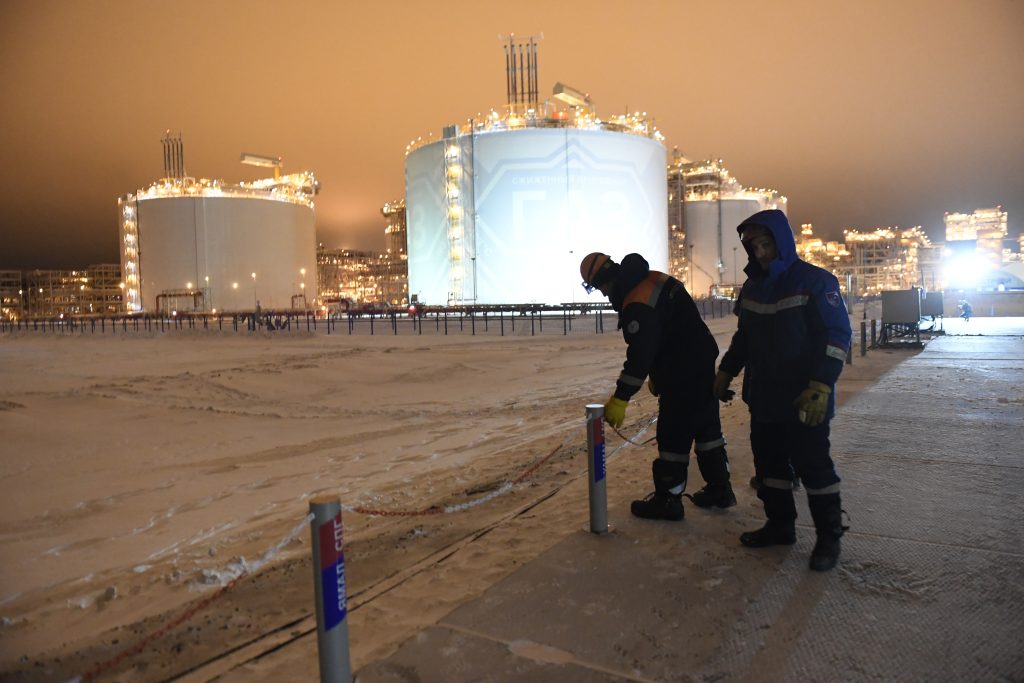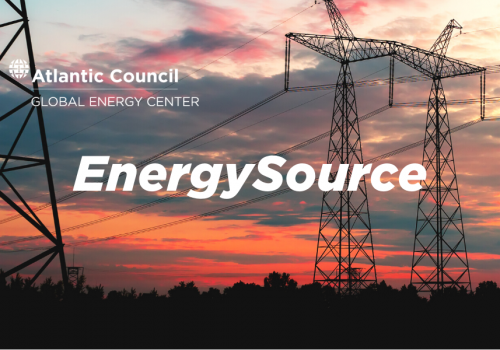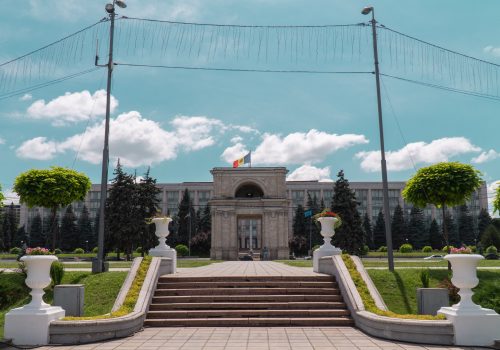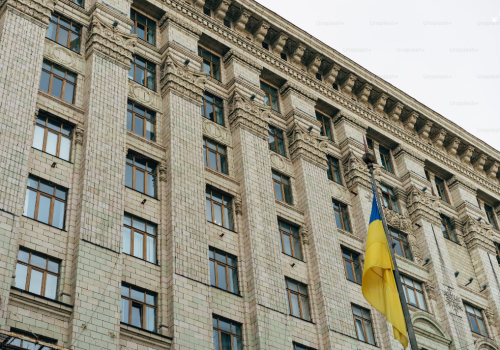Last Wednesday, Russian President Vladimir Putin landed in the United Arab Emirates for a short visit before heading to Saudi Arabia. His trip outside of Russia, a rare occurrence since Russian forces began their full-scale invasion of Ukraine in February 2022, is evidence that Putin is strategically wielding his country’s influence among OPEC+ nations—this at a time when the United States and European Union are attempting to tamp down Russia’s fossil fuel exports that help fund its war. Efforts to do so have yielded mixed results, and with Russia’s military budget set to dramatically increase in 2024, the West must do more to staunch the flow of Russian oil and gas—and restore peace for Ukraine.
The connection between Russia and oil-and-gas-producing countries in the Middle East has undeniably strengthened in the nearly two years since the invasion of Ukraine and Russia’s hybrid energy warfare against Europe began. Following the imposition of a price cap on Russian oil by the Group of Seven (G7) and the subsequent reluctance of most Western nations to consume Russian crude, international traders seeking unhindered dealings with Russia flocked en masse to Dubai.
But preventing financial actors from capitalizing on these resources is imperative. Attempts to do so thus far have largely been thwarted. International sanctions on Russian exports of fossil fuels—its primary financial resource—aimed to deal an economic blow to the Kremlin. Initially impactful, these measures soon faltered due to various loopholes and insufficient enforcement, rendering them ineffective, with Russian fossil fuels ending up in unexpected places. Investigations by the Washington Post and Project on Government Oversight reveal that shipments of Russian oil have continuously made their way to a refinery that supplies fuels to US military bases in the Mediterranean Sea. And, as the authors found in their report, “The carbon war: Accounting for the global proliferation of Russian fossil fuels,” the share of tax proceeds from fossil fuel exports in Russia reduced this year but still represents nearly a third of all federal income.
Since February 24, 2022, Russia has amassed around $600 billion in profits from fossil fuel exports, and is rushing to develop Siberian and Arctic fields. If, however, international sanctions on Russia’s fossil fuel industry remain in place and are rigorously enforced, the International Energy Agency projects that the Kremlin’s profits from oil and gas could plummet by 40 to 50 percent by 2030.
Anything short of a unified approach among Western nations to curb the export of Russian fossil fuels and hinder the country’s expansion of LNG exports would reveal a vulnerability that the United States, EU, and all G7 nations cannot afford in a destabilized world. Reaping profits from oil and gas exports, the Kremlin has sponsored more than 112,000 registered war crimes in Ukraine since February 2022. Russia has alarming plans to escalate the brutal war in Ukraine even further. These plans are starkly visible in its recently adopted budget for the coming year. For the first time since the Soviet era, the Kremlin allocated almost a third of all expenditures to the army and the military-industrial complex. In 2024, the national defense budget will swell to 10.775 trillion roubles, which is 70 percent more than in 2023, 2.3 times more than in 2022, and three times higher than in pre-war 2021. The army and private military companies will account for 30 percent of the 2024 budget, with all security forces together receiving 40 percent.
Frankly put, for the United States and NATO to maintain credibility concerning international security, it’s high time they earnestly consider dismantling the Russian oil and gas business. Putin’s recent trip to Middle East shows that Russia is increasingly becoming politically and economically invested in the key region that stirs in Russia’s oil and gas into world markets. Controlling profit-driven traders, banks, shippers, refineries, and all intermediaries sustaining the Kremlin’s financial lifeline is no simple feat. However, it’s an imperative task that the Biden administration and other Western leaders can’t afford to dodge.
Svitlana Romanko is the Founder and Director of Razom We Stand.
Oleh Savytskyi is the Senior Campaigns Manager of Razom We Stand.
Related content
Learn more about the Global Energy Center

The Global Energy Center develops and promotes pragmatic and nonpartisan policy solutions designed to advance global energy security, enhance economic opportunity, and accelerate pathways to net-zero emissions.
Image: Port Sabetta, Yamal, Russia, December 9, 2018, Yamal - LNG natural gas production and transportation plant. (Sergey Rusanov, Shutterstock) https://www.shutterstock.com/image-photo/port-sabetta-yamal-russia-december-9-1336299206




